UN INT Intro Text w/ Centered Large Responsive Image - *Important Note* You must UNLINK this shared library component before making page-specific customizations.
A new PETA video exposé of Thailand's betta fish industry documents entrenched neglect and cruelty to fish who are bred into a life of deprivation and suffering. The video shows bettas confined to tiny containers in water that barely covers their bodies. The eyewitness—who visited 10 breeding factories and packing operations—saw numerous dead bettas, many on the floor, likely having suffocated. Bettas were also deliberately left out of the water for long periods of time while workers sorted them for shipping.
UN MIS Responsive YouTube Video - *Important Note* You must UNLINK this shared library component before making page-specific customizations.
While you may see bettas referred to as "Siamese fighting fish" or "labyrinth fish," their scientific name is Betta splendens. No matter what they're called, these fish are sensitive and complex individuals who suffer greatly when exploited in the pet trade.
A Trail of Dead Fish Behind Every Purchase
Bettas from breeding factories in Southeast Asia, including Thailand—one of the top global exporters—are sold to African nations, Australia, Canada, China, Dubai, France, Germany, Hong Kong, India, Japan, Malaysia, Peru, the Philippines, Russia, Singapore, South Korea, Taiwan, Turkey, and the U.S.
Dead fish were found at every facility visited by PETA's eyewitness. Many died in breeding tanks, and workers didn't bother to remove the dead bodies.
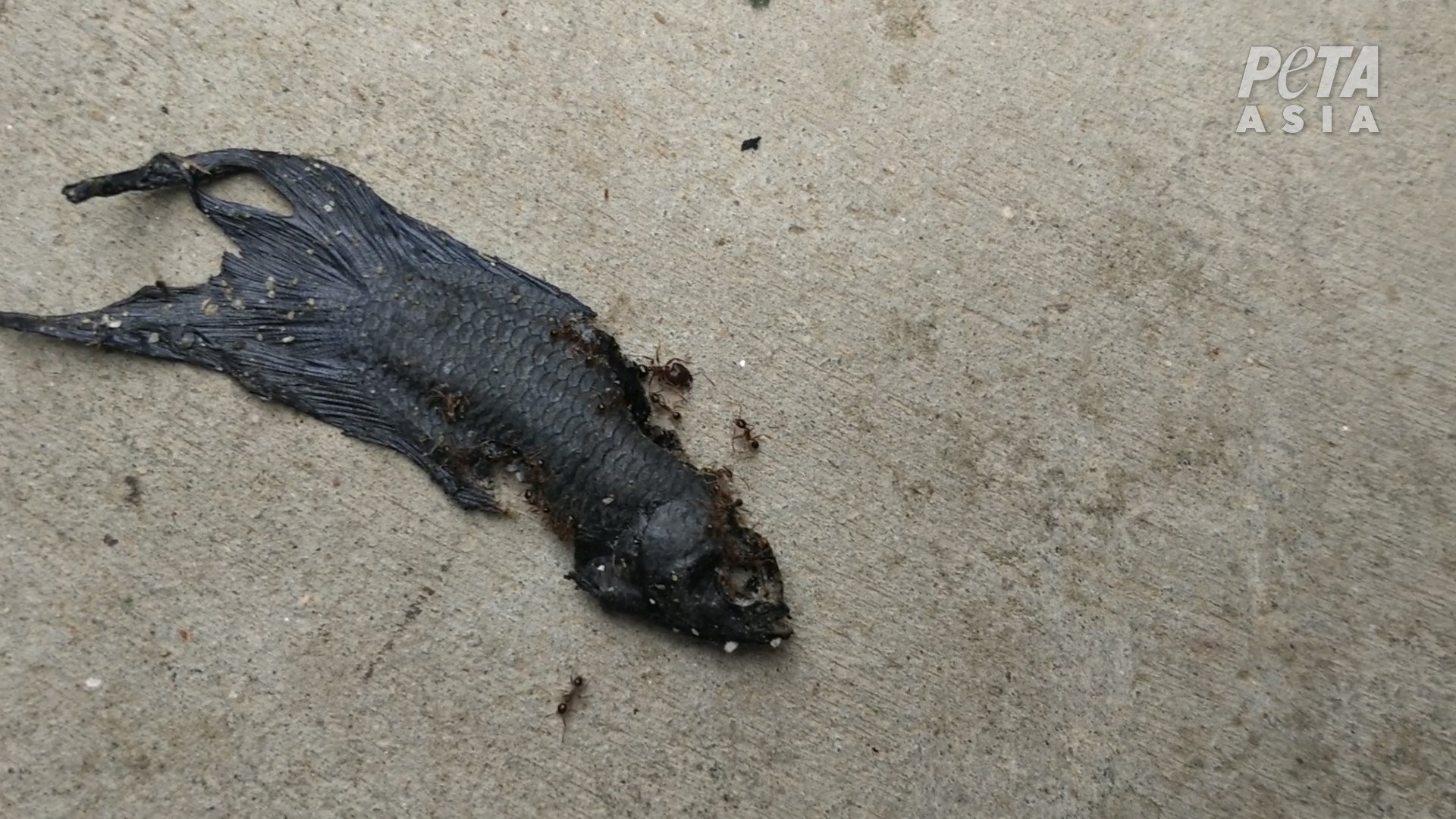
At one facility, tens of thousands of fish were kept in small, often filthy bottles that were packed tightly together, covering entire warehouse floors. In such a small volume of water, ammonia from the fish's waste builds up, quickly contaminating it. Bettas are vibrant, complex animals with specific needs. To be healthy, each one needs a minimum of 9.5 liters of clean, filtered, flowing water.
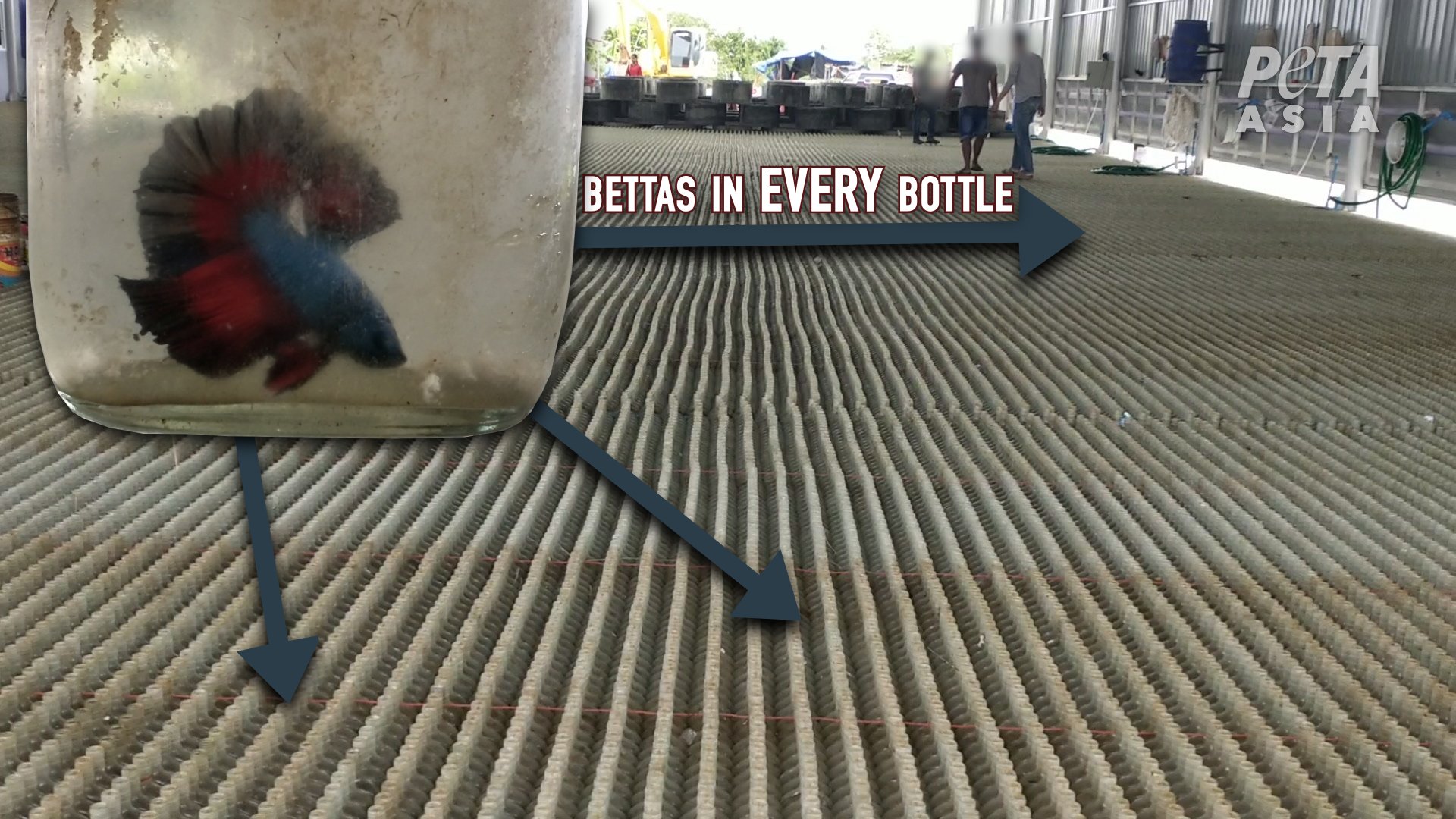
Starved and Doped: Bettas' Harrowing Journey From Thailand
When betta fish are shipped to countries around the world, they're packed without any food and left to starve for days. A worker told the eyewitness that a tranquilizer is added to the water so the fish won't eat their own tails during the arduous journey. Many bettas die before reaching their intended destination.
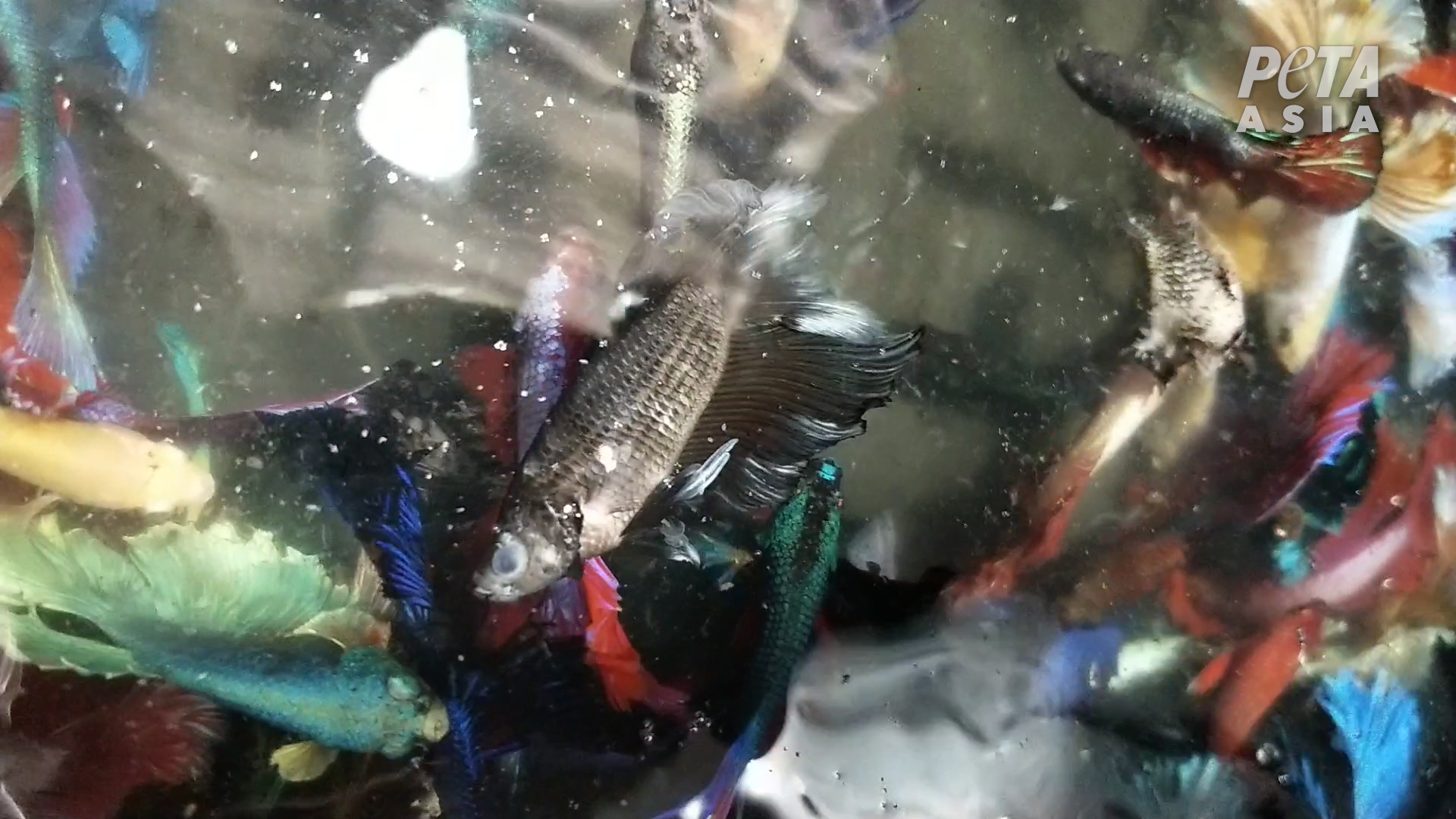
Those with tails that were considered imperfect were deemed unprofitable and—according to a worker—dumped into a nearby canal or pond to fend for themselves in an unfamiliar habitat.
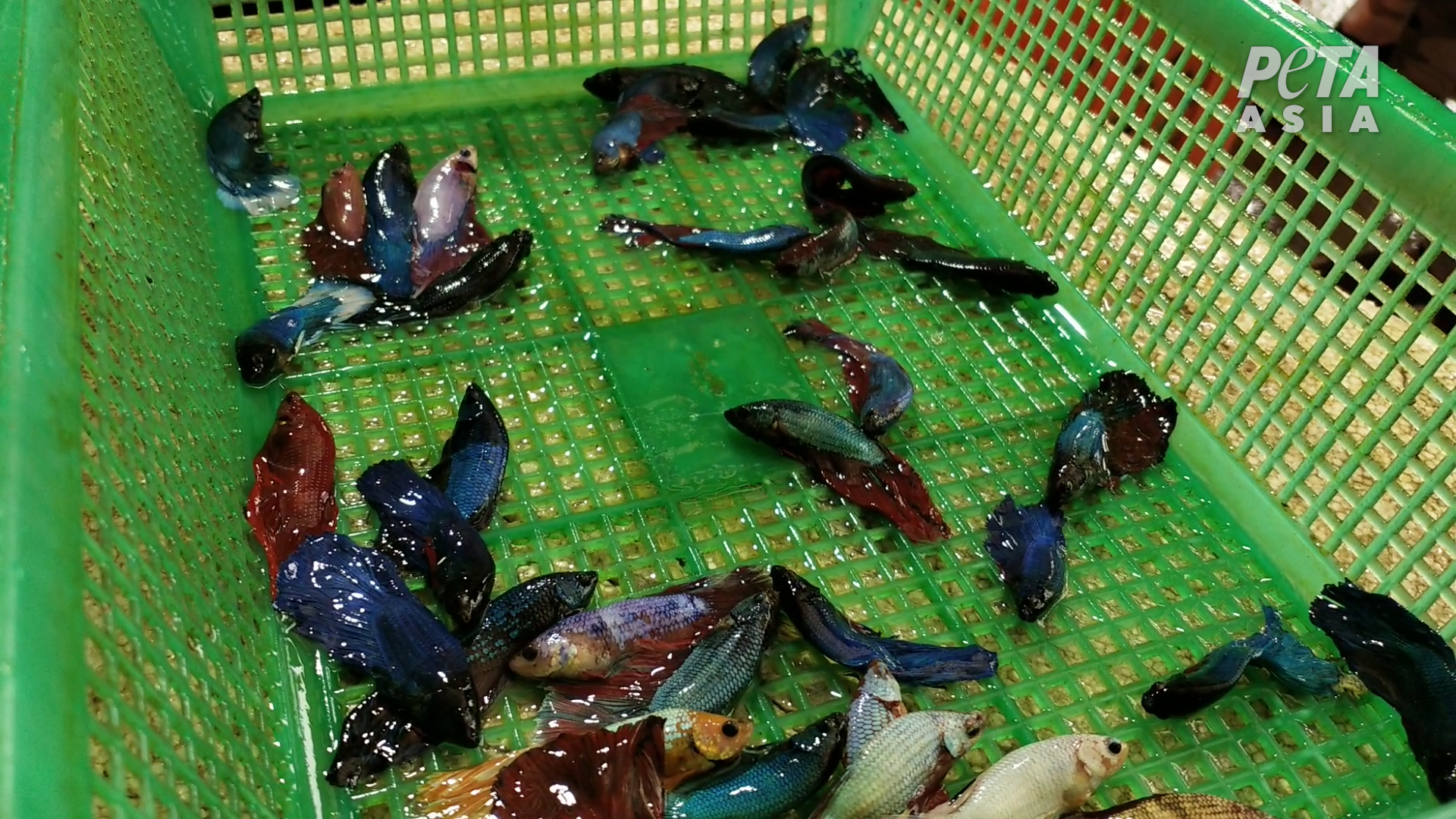
Bettas Are Suffering in the Pet Trade—Take Action!
The trade in betta fish is causing suffering on a massive scale. Please don't buy these fish or support pet stores or markets that sell them.
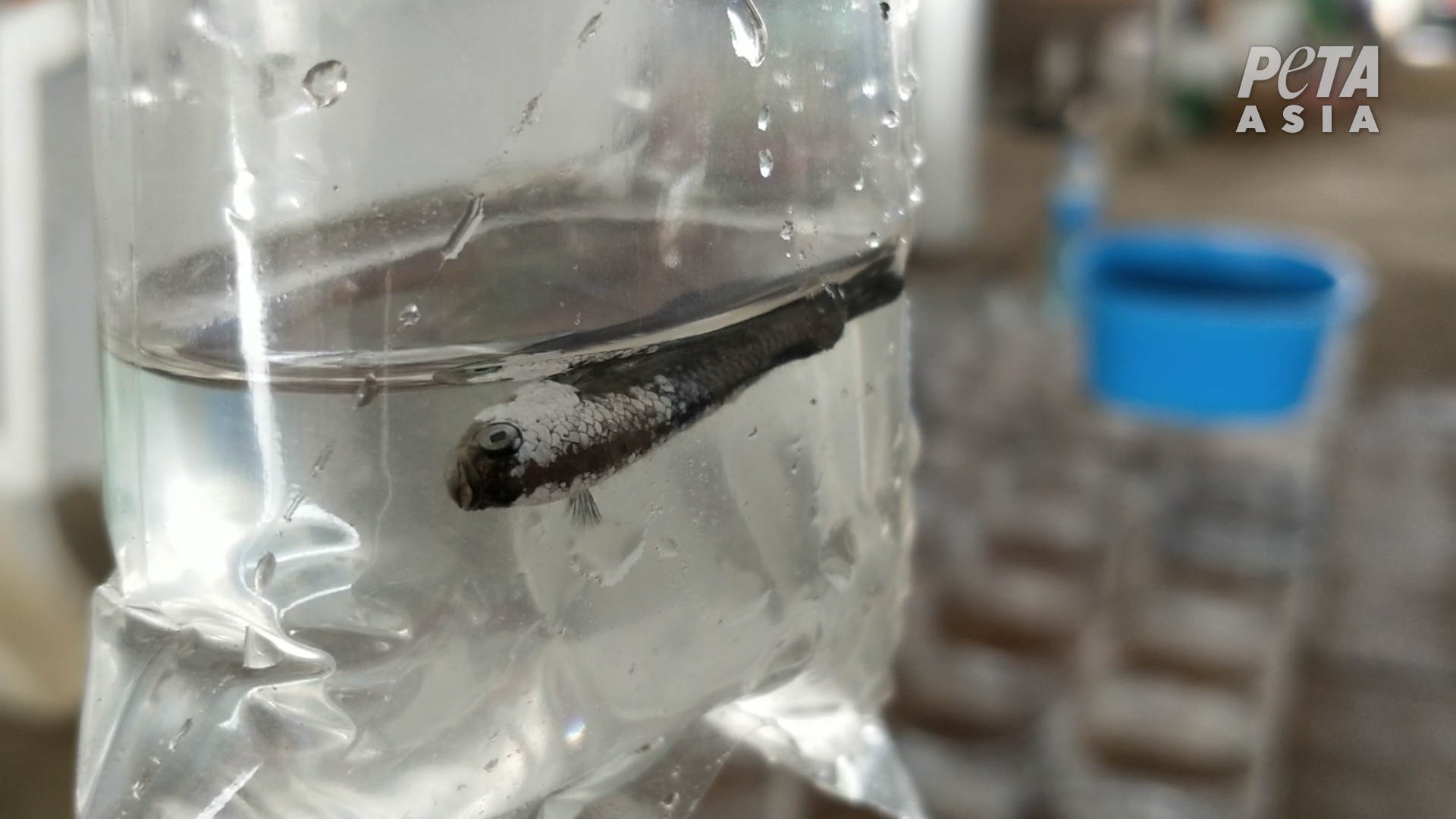
Do more: Urge EVA Air and Korean Air to stop transporting live betta fish overseas immediately!